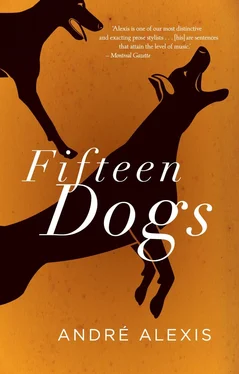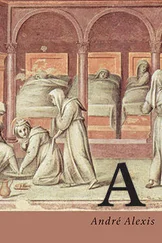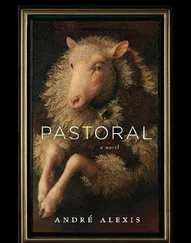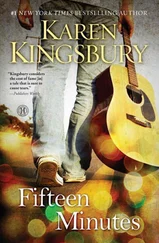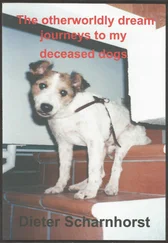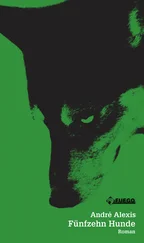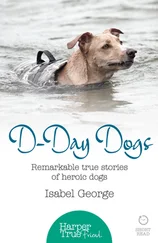In the end, however, High Park’s most significant complication was in what it evoked for Majnoun. It was the place where he had almost died. So, naturally, before they went together, Nira had asked if he wished to return to High Park. The name ‘High Park’ had meant nothing to him, but she made certain he knew it was the place where she and Miguel had found him more dead than alive. She worried that it would be unpleasant for him to recall his trauma, but Majnoun had wanted to return. So they had gone together, and he, to his own surprise, had suffered horribly. The memory of being done almost to death was humiliating. It was also frightening. Nira made a point of avoiding the place where she and Miguel had found him, but that made no difference. Majnoun knew the park well — its smells, its grasses, its hills, its fountains, its roads, its zoo, its restaurants and garbage bins — and it cut him to walk in what had been his territory.
And yet, despite the evident distress it caused him, Majnoun needed High Park.
One day, wishing to spare him the pain, Nira had taken him to Trinity-Bellwoods. Majnoun had looked around and then walked back to the car on his own, waiting for Nira to take him where he wished to go. What he could not communicate was his need to find his former pack or the remnants of it. For reasons he did not himself understand, it was unbearable to think that he might be the last of his kind. The feeling was beyond loneliness. It was desolation. When he was in High Park, Majnoun was both wary and hopeful that he would meet his former den mates.
The one Majnoun met at last, Benjy, was not the dog you’d have thought would survive Atticus’s reign. But Benjy was resourceful and dishonest in ways Majnoun did not fathom. The dog lied whenever it suited him. He was ingratiating, two-faced, self-interested and, crucially, sensitive. He could read a situation quickly and quickly tell which side of any conflict it was best to be on. He had flaws but his instincts were acute, almost infallible.
That the two met again was pure chance. Majnoun did not like to walk along the road reserved for humans and their dogs. On this road — a depression or narrow valley between modest hills — dogs ran about unleashed. If they were at all aggressive, the dogs would run straight at Majnoun, attacking without warning. Majnoun defended himself very well, however. He was merciless when attacked, having learned a lesson from Atticus, Max, Frick and Frack. In a number of cases he had seriously hurt the attacking dog. He had, for instance, bitten clean through the throat of a Rottweiler, sitting still until it jumped at him, then ruthlessly attacking the dog’s underside. The Rottweiler’s owner, furious, had run to protect his animal, but by then the Rottweiler was in shock and copiously bleeding. Majnoun, vigilant and wary, had sat beside Nira as the humans shouted at each other.
In a way, Majnoun’s attackers were useful. He was not afraid of the dogs who went for him, and his self-confidence grew at each victory. Still, he did not like to hurt other dogs, so he and Nira avoided the off-leash area. One would have thought that the other members of Majnoun’s pack would have avoided it as well, the attention of humans or dogs being unwanted. Yet Benjy and Majnoun found each other again near the first of the small bridges over the freshet that ran beside the off-leash road.
How Majnoun got there is easy enough: he was distracted by Nira’s talk about the government in some faraway place. It was winter — more than a year after Majnoun had been rescued — and the smell of the world was less sharp, masked by snowfall. So Majnoun (and Nira) wandered into the area without realizing where they were. Benjy, on the other hand, was there out of desperation. He was fleeing, as best he could with his short legs, the attentions of an aggressive Dalmatian.
Benjy saw Majnoun first and cried out in their shared language.
— Black dog! Black dog, help me!
Majnoun looked up to see Benjy half-running, half-tumbling down the hillside.
Immediately, instinctively, Majnoun went to the beagle’s aid. To Nira’s dismay, Majnoun put himself between the Dalmatian and the beagle, barking and growling as if he were ferocious and unhinged. The Dalmatian thought about challenging Majnoun, but it was now faced with something beyond its comprehension: two dogs that did not feel like dogs, two manifestly alien versions of the canine. With surprising grace, the dog fled back up the hill whence it had come.
— Jim, said Nira, what are you doing?
Majnoun ignored her. He waited for Benjy to recover from his run, then said
— You are the small dog with long ears from our pack.
— Yes, said Benjy. I am that dog. I tell you, black dog, I’ve been mounted more often than a bitch in heat since those days.
Then, changing the subject, Benjy said
— Have you found a new master? This one does not seem cruel. Does it beat you?
— No, said Majnoun. She is a human I live with and she does not beat me.
— Then you’ve had good fortune since you left us. I wish you and the dog who spoke strangely had taken me with you.
— I was bitten and left for dead, said Majnoun. I did not choose exile.
— Just what I thought, said Benjy. The others dogs believed you and the strange dog had gone away, but I did not believe it. Why would the black dog leave his den mates, I asked.
— Where are the others? asked Majnoun.
— That would take a lot of words, said Benjy, and I am hungry.
Benjy looked over at Nira. Without warning, he barked happily and rolled over in the snow.
— What are you doing? asked Majnoun.
— It is a thing humans like, said Benjy. Don’t you do it? It is a very good way to get food.
— Where are the others? Majnoun repeated.
Again, Benjy barked happily and rolled over in the snow.
— Stop that, said Majnoun. She does not understand your …
Nira did seem to understand, however. She had, with a kind of fascination, been watching the two. She was hearing what she thought of as Majnoun’s real language for the first time: clacks, low growls, rough barks, sighs and yawns. It was incomprehensible. The only part that made sense to her was Benjy’s playful barking and his rolling over in the snow. So, interrupting Majnoun, she said
— Your friend is hungry, isn’t he? Why don’t we bring him home with us for a while? I didn’t bring anything with me to eat, but there’s more than enough at home.
Despite himself, Majnoun was annoyed. But, to Benjy, he said
— She says there is food where we live.
— You understand human language? asked Benjy. I would like you to teach me. If you teach me, I’ll tell you everything you want to know about our pack.
— You’ll tell me what I want to know or I’ll bite your face, said Majnoun.
But Majnoun was a poor liar in both of his languages, and Benjy was not troubled. Benjy, who was a good liar, had seen Majnoun’s body after Atticus, Max and the brothers had finished with it, and having seen Majnoun ‘dead,’ he was not frightened of him. He assumed that if Atticus and his co-conspirators had got the better of Majnoun, he could almost certainly outsmart Majnoun as well. Why should he respect a dog who was demonstrably inferior to Atticus?
He went home with Nira and Majnoun, blithely.
No sooner did Nira put down a bowl of rice and chicken livers than the beagle was on it, eating as if afraid Majnoun would take some. He had not had anything proper to eat in days. He’d had no luck begging from humans along Bloor Street. So he’d returned to High Park, searching for scraps beneath the snowfall and, even, hunting for the mice and rats that scampered around the restaurant near the dog park.
Читать дальше
